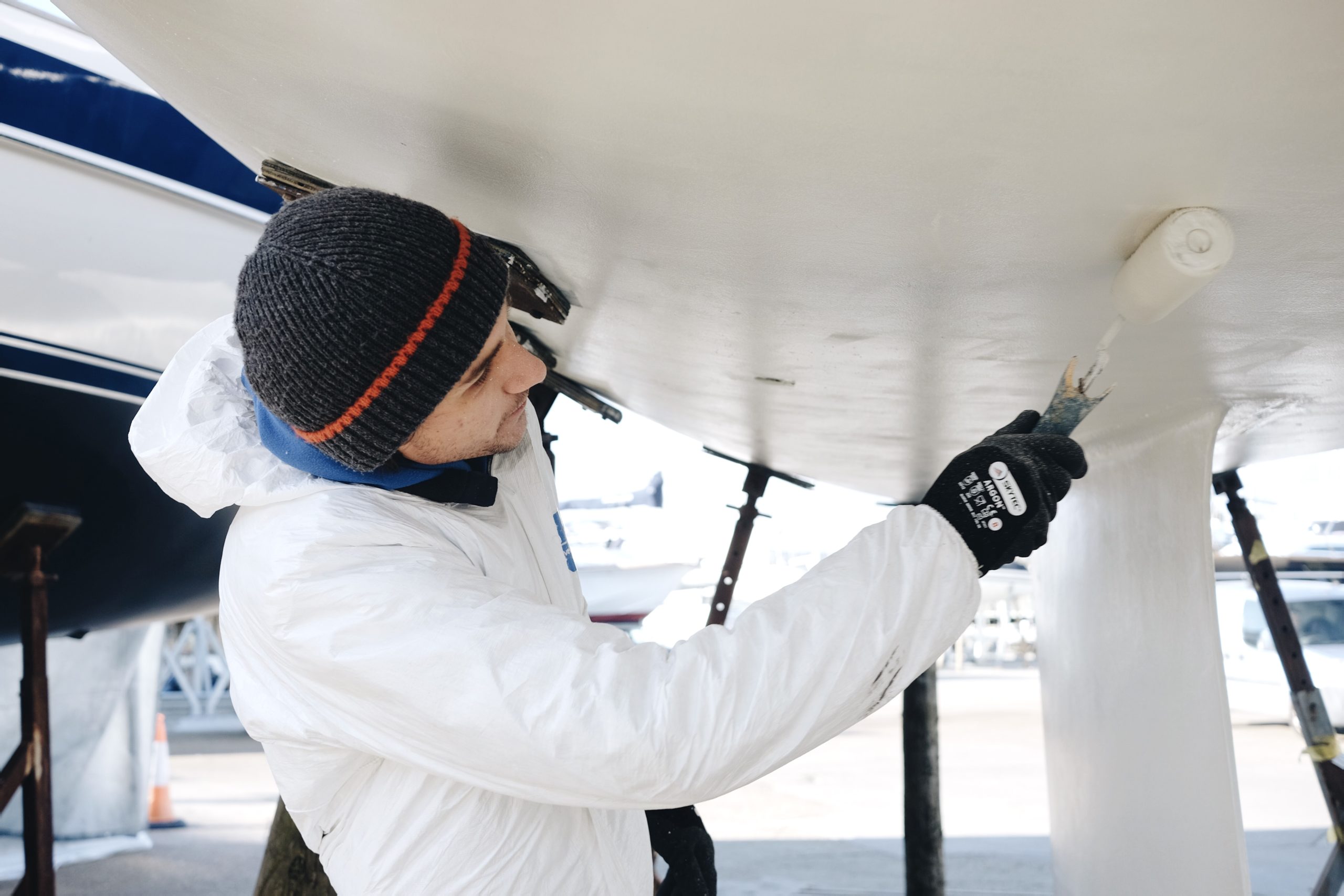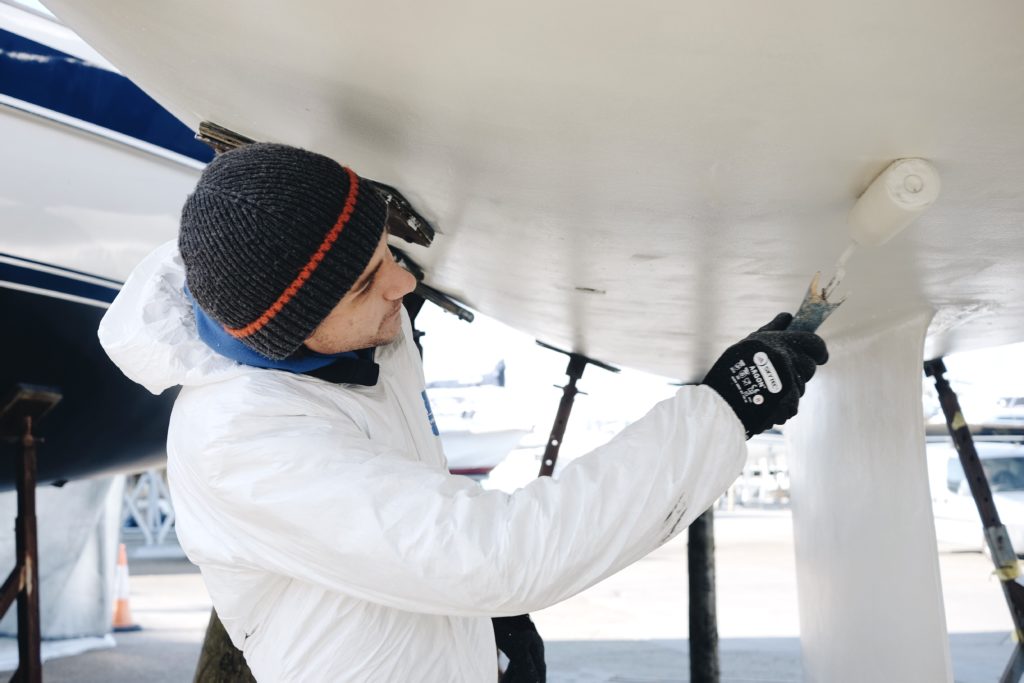The leisure boating market in the UK is supported by a diverse range of marine trade subcontractors, all of whom play critical roles in ensuring that the yacht industry runs smoothly. This article provides tips to manage risk as a subcontractor in the yacht industry.
Yacht industry subcontractors include skilled professionals such as shipwrights, boat builders, boat repairers, marine engineers, marine electricians and boat valeters, among others. These subcontractors play an essential role in maintaining and enhancing the boat ownership experience, as well as ensuring a thriving marine industry as a whole. Within their position they have to deal with a complex landscape of regulations, boat owner demands, and risk management.

The Importance of Subcontractors in the Marine Sector
Subcontractors form the backbone of the leisure marine industry, providing specialised services directly to boat owners, as well as to larger companies that often depend on them to boost their own services. The pool of expertise that sub-contractors have is crucial, not only for boat building, repair or maintenance, also for upholding safety standards and ensuring customer satisfaction. However, increasing regulation and the competitive nature of the market mean that marine subcontractors face numerous challenges.
Risk Management
Risk management is critical for subcontractors, especially when dealing with valuable assets such as yachts and motorboats. The following key aspects highlight the importance of managing risk effectively:
- Insurance Requirements:
- Many marinas and boatyards have stringent insurance requirements for contractors, particularly mandating a minimum level of Public Liability Insurance. This protects subcontractor’s businesses against claims for injury or damage to property while on the job.
- Employers Liability Insurance is also crucial for subcontractors who have employees, ensuring compliance with legal obligations and protecting against workplace injury claims.
- Asset Protection:
- The tools and equipment used by subcontractors can be costly and susceptible to theft or damage. Investing in comprehensive insurance coverage for equipment is essential to mitigate financial loss, which is sadly becoming an all too common occurance.
- Legal Compliance:
- Subcontractors must stay abreast of evolving regulations affecting their operations, including health and safety standards, environmental regulations, and worksite protocols.
- Client Relations:
- Clear communication with clients about the risk management strategies in place fosters trust and can enhance business relationships.
- Demonstrating adherence to industry standards and regulations can also serve as a competitive advantage in attracting new business. It serves as an indicator of quality standards and a habit of paying attention to all important details.
- Reputation Management:
- Mitigating risks not only protects against financial losses but also preserves the reputation of subcontractors in a competitive market.
- Negative incidents, whether they result from accidents, legal claims, or compliance failures, can have lasting impacts on a business’s reputation. When issues are dealt with timely and appropriately, it can actually have a positive effect on how a business is perceived.
Conclusion
It’s clear that subcontractors in the UK leisure boating marketplace are integral to the industry’s success, yet they face unique challenges that necessitate a proactive approach to risk management to ensure sustainability.
An appropriate Marine Trade Insurance policy serves as a fundamental tool in this strategy, alongside robust operational protocols and compliance measures.
For subcontractors, understanding the landscape of risks and establishing solid practices not only protects their businesses but also upholds the standards of the entire marine industry.
Stoneways Marine Insurance
Stoneways Marine is dedicated to supporting the marine trade sector, leveraging 40 years of direct Marine Trade insurance experience. As an independent entity, we collaborate with a range of highly rated specialist Insurers to provide customised insurance solutions.
Our approach begins with taking the time to form an understanding of each marine trade subcontractor’s business, identifying potential risks and tailoring policies to effectively mitigate them.
We prioritise flexibility, working closely with subcontractors throughout the year to adjust insurance arrangements as their needs evolve.
Recognising that navigating the complexities of the Marine Trade insurance market is often not a priority for boating subcontractors focused on their core business, we essentially function as an in-house insurance department for our clients.
At Stoneways Marine, we are pleased to offer a no-obligation assessment of your Marine Trade insurance needs, providing tailored terms that align with your specific requirements. We are pleased to help you secure the right protection for your business and work with you to thrive into the long term. To find out more about our marine trade insurance and to make an enquiry please click here.
If you have any questions on these tips to manage risk as a subcontractor in the yacht industry please also get in touch and we would be more than happy to answer them.
This article was written by our Managing Director Keith Lovett, who has decades of experience in the marine trade insurance sector.


